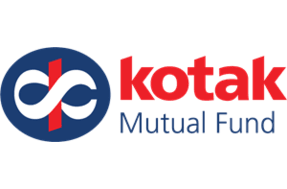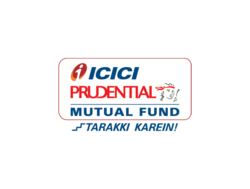Ahealth insurance policy extends coverage against medical expenses incurred owing to accidents, illness or injury. An individual can avail such a policy against monthly or annual premium payments, for a specified tenure.
During this period, if an insured meets with an accident or is diagnosed with a severe ailment, the expenses incurred for treatment purposes are borne by the insurance provider.
You can also enjoy several add-on benefits, extended with health insurance policies, which are discussed in detail in the following sections.
Any medical condition requiring urgent hospitalisation is covered under standard health insurance plans. However, claims are only entertained, provided the disease has not been previously diagnosed when the insurance plan was not availed.
Hospitalization expenses incurred under the following situations are also extended by renowned insurance providers:
– Some insurance providers extend substantial amounts equal to or greater than the sum insured for covering all underlying expenses to treat critical diseases. All medical costs inclusive of hospitalization, diagnosis and medication, etc. are covered by most companies.
Medical expenses borne in due course of hospitalization due to illnesses or accidental injuries also come under these expenses. Comprehensive treatment charges up to or higher than sum insured is offered by major insurance providers. Such extensive coverage helps you stay financially protected in the event of any unforeseen circumstances.
Pre hospitalisation expenses such as diagnosis expenses, and doctors’ fees etc. can be covered by a health insurance plan.
Expenditures post-release such as medication, routine check-ups, injections, etc. are also reimbursed by most insurance companies. Compensation funds against the same can be extracted as a lump sum amount, or by producing respective bills.
Health insurance policies also cover ICU bed charges. An insured individual can also choose to stay in a private room, costs of which can be billed against the respective insurance provider, up to a specified amount or total insured amount, at the discretion of the insurance company.
Hospitalisation in due course for psychiatric treatment is also covered under such health insurance policies. With rising rates of mental health issues in India and globally, this facility allows individuals to seek professional help for a well-rounded life.
Only specific insurance providers agree to bear all expenses incurred for surgeries aiming to help individuals overcome their obesity problems. Obesity often lead individuals to develop other related complications such as heart problems, diabetes, high blood pressure, etc. This promotes the overall wellbeing of individuals in the long run.
Such features of a comprehensive health insurance policy are adept at meeting all major medical expenses an individual might face. At slightly higher premium charges, additional benefits in the form of higher coverage facility are offered by major institutions.
Room rent of hospital rooms is covered under such health insurance policy, allowing insured individuals to recover with comfort. Total amount disbursed in such cases are specified by an insurance company beforehand.
Expenses incurred for daycare treatment at hospitals such as dialysis, cataract, tonsillectomy, etc. are covered under most health insurance plans.
A standard health insurance policy covers any ambulance expenses incurred during times of medical emergency. This poses a significant benefit as premium hospitals often charge substantial amounts for transportation.
Under such health insurance policy, you can make claims amounting up to the sum insured twice a year, provided the medical conditions are different each time.
For every non-claim year, insured individuals are extended discounts or a higher sum insured (at no additional cost) in the succeeding years, that can help to reduce their premium charges payable annually or to extend their sum insured coverage.
Daily cash allowance is provided by stipulated institutions, enabling individuals to make up for the loss of pay during times of hospitalization.
Renowned insurance companies cover the entire medical bills generated during the treatment procedure of an insured individual, up to the sum insured amount. Zero co-payment mitigates the financial liability of a patient, allowing him/her to focus solely on recovery.
Know more about
In India, treatment costs usually vary from one city to the other. It is especially higher in metropolitan cities like Delhi and Mumbai.
With a zone upgrade, you can avail higher financial coverage for treatments at different city zones. Zones are classified as per the city’s medical expenses. The higher the medical expense in a particular region, the higher it is placed in such classification.
This add-on allows you to account for the disparity in treatment costs across different regions or zones with a slightly higher premium. But subsequently allows you to save on your total premium by 10%-20%.
Coverage against all expenses incurred for home hospitalisation is covered under comprehensive health insurance policies. This includes medication, nurse fees, injections etc. payable for comprehensive treatment of a patient.
Claims can be made against all medical bills accruing to organ donation.
All major insurance companies maintain the above-stated provisions on their insurance products. Nonetheless, various types of insurance policies are offered to attribute to specific diseases, or catering to different age groups.
An individual health insurance policy, like its name suggests covers the treatment cost of a single individual. This cover can be availed for yourself, parents including your spouse and children.
Under this plan, every family member gets an individual sum insured. For example; if your plan sum insured is Rs 10 lakhs, each family member gets to use up to 10 lakhs each for that policy period, i.e. if you’re buying an individual plan for three members, the collective sum insured for the three would be Rs 30 lakhs.
It means that if something were to happen to all/more than one of your family members at the same time, this health insurance policy will be enough to cover them all due to the separate sum insured amount.
Under such plans, a single sum insured is available for all individuals under one policy. This entire sum can be disbursed for treatment of one person respectively, in which case no subsequent claims are covered in the event of another medical emergency.
Senior citizens are not eligible under family floater plans, as their medical needs tend to be more complicated.
Tailor-made to suit all medical expenses of aged individuals, such plans can only be obtained by people above the age of 60 years. Comprehensive coverage for different types of illnesses which might develop due to old age is extended.
Companies extend such plans to their employees. Premium is paid by the employer itself and has provisions which ensure refill of the sum insured. Such group health insurance policies are cost-effective and are undertaken disbursed as an employee retention tactic.
However, you should remember that this insurance cover can only be availed as long as you are employed at the company. The benefits of the cover cannot be availed if you are terminated or have left your job at the company.
All pre and postnatal care expenses incurred during pregnancy are covered under maternity insurance cover. Medical bills of a new-born are included for the first three months as well. However, such policies come with a waiting period of two years.
Oftentimes, the treatment costs you estimate while availing a health insurance cover can increase over time even though your sum insured remains unchanged.
Under such circumstances, you can choose to avail a top-up for your existing cover, instead of purchasing a separate policy. This top-up policy helps to increase the overall sum insured which you can use in case of any emergency.
But to avail the top-up, you will first need to choose a deductible amount. For example, if you go for top-up plan of Rs. 3 Lakhs with a deductible of Rs. 50,000.
Then, at the time of claim, you will first have to bear this Rs. 50,000 from your pocket. Once the deductible amount is exhausted, the insurance provider will come into the picture and will borne the remaining expenses up to 3 Lakhs.
These health insurance plans are designed to meet all healthcare expenditures a person might incur in their lifetime. It is significantly different from life insurance plans, as the latter provides financial coverage based on the life or death of an insured individual.
While life insurance policy aims to secure the financial requirements of an insured’s dependent family members in the event of untimely death, health insurance scheme gives an individual access to quality health care and treatment facility
|
Points of Difference |
Health insurance |
Life insurance |
|
Aim |
Cover all medical expenses for treatment and recovery in the event of diagnosis with certain ailments. |
Financial protection to the immediate family in case of untimely death. |
|
Amount payable |
Up to the sum insured. |
Death benefit (upon prematurity expiry of an insured) Lump sum pay-out on maturity |
|
Tax benefits |
Health Insurance tax Benefits of up to ₹1Lakh. (Section 80D of the Income Tax) |
Tax Benefits of upto 1.5 Lakh per year (Under section 80C of the Income tax Act) |
Health Insurance Tax Benefits
If you avail a health insurance policy, you can avail tax benefits under Section 80D of the Income Tax Act, 1961. The table below illustrates the break-up of tax exemptions on your health insurance policy:
|
Eligibility |
Exemption Limit |
|
For self and family (spouse, dependent children) |
Up to ₹25,000 |
|
For self, family + parents (below 60 years of age) |
Up to (₹25,000 + ₹25,000) = ₹50,000 |
|
For self and family (where the eldest member is below 60 years of age) + parents (above 60 years) |
Up to (₹25,000 + ₹50,000) = ₹75,000 |
|
For self and family (eldest member is above 60 years of age) + parents (above 60 years of age) |
Up to (₹50,000 + ₹50,000) = ₹1,00,000 |
Give shape to your investments with our powerful tools & invest now.

Prioritize your financial goals with a customized financial plan!

















Health insurance is an insurance product that provides cover for medical and surgical expenses of an insured person, in case of a medical emergency. However, you are required to pay a premium to avail health insurance policy.
You should purchase health insurance so that you don’t lose your lifelong savings while paying for medical bills in a critical situation.
Your health insurance will either pay your hospital bills directly if opted for the cashless facility or it will reimburse any payment made by you towards medical expenses incurred due to an illness or injury.
While the eligibility age for health insurance policies differs, the general eligibility age for adults ranges between 18 years up to 65 years. The eligibility age for children lies between 90 days up to 18 years.
Yes! You can gain coverage for self, spouse, children, dependent parents, and multiple other relationships such as parents-in-law, siblings, and others if your plan allows.
Schedule If You Want To Have a Tailor-Made Customized Plane.


Made with ❤️ Fadwrap